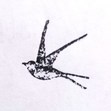Who Are You Again? Character Names
There are many ways authors give their characters names. And it’s often important to get it right – I’ve talked a little about the – when these characters are going to take up so much stage-time, as it were. But where do I get names from?
An easy answer is just naming characters after people you know. I know lots of authors do this – I tend not to as a general rule, but I definitely have done so. If I do pick a real name I’ll go for people I’ve met, but not people I actively spend time with; it seems a little weird to write about a fictional version of someone and then go and spend an evening with them at the pub. But real human names are real human names for a reason, so it’s always worth remembering interesting ones for later.
Observation is another way to gather names. Keep your eyes open and you’ll find all sorts of interesting person- and place-names around you – the sort of thing I tend to record in my notebook, forget about for six months, and then dig out when I’m desperately wracking my brains for a village name in a short story. For instance ‘Whetstone’, the setting of The Fire Within (and, I realised later, of a completely separate short story that I might try and tie in later), is a real village in the UK that I pulled off a road sign. It’s often more fun to give people place-names and vice-versa, too. While I was in Pembrokeshire a few weeks ago, I jotted down a few good signs, and now I really want to name a character Wiseman Bridge.
Sticking with theme works too. If I’m writing a story set in space or on another world, I’ve gotten good mileage out of looking up early astronomers and scientists and nicking their names for characters – the sort of people who’ve got a crater or two on Mars named after them. It makes a fun easter-egg for knowledgeable readers too, and I definitely like an in-joke. (As readers of the Boiling Seas have either figured out already, or will do so in book 3…)
But there is another way to get names. The way that I got most of my secondary character names for years. I would labour for a long time getting my protagonists just right, but when it came to background characters and one-scene wonders, I had a foolproof method.
Because in the early days of my proper writing, I was a student. I was a history student. A history student with at least one or two essays on the go at all times; essays which required lots of reading, lots of books. My desk, therefore, was always home to at least one stack of at least seven or eight weighty historical tomes, most of which were secondary sources. Books on Ancient Rome, on medieval medicine, on satire and science-fiction and all sorts of other weird stuff. And on the spines of those books were the names of their authors.
And so when I was looking for a character name, I would glance up, pick a forename and surname at random from the stack, and that would do. Booksellers, map-makers, guards and whoever I needed – random names from the bibliography. It worked well – a wide range of secondary sources meant a wide range of nationalities too, which really helped make the world seem wider. And writing lots of essays meant a constant change-over of books, so I seldom had the same books twice. Even more significant characters got this method sometimes. Mikhail Siras, villain of The Blackbird and the Ghost? Nancy Siraisi, Medieval and Early Renaissance Medicine (1990).
While I’m glad I have an actual job and don’t have to write a massive essay every couple of weeks anymore, it is annoying to no longer have this handy and ever-changing resource. I have to actually think of names… or look at the credits in nearby film posters, or steal village names from maps, and things like that.
But I suppose in conclusion, the best source of names for writing is… names.
Probably didn’t need to write this whole thing out, did I?



